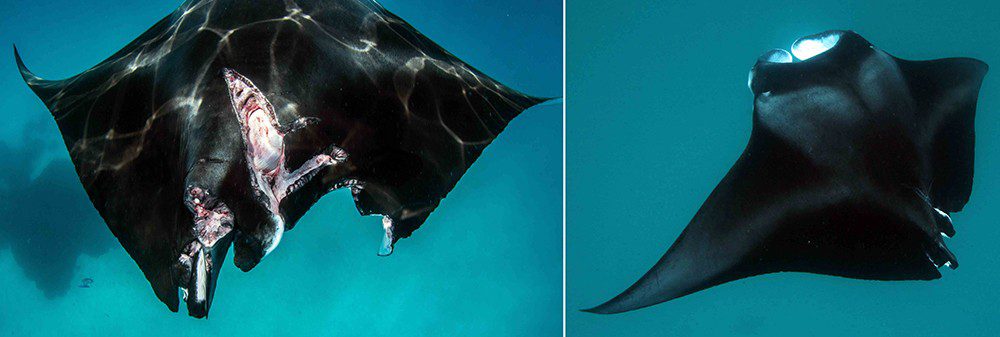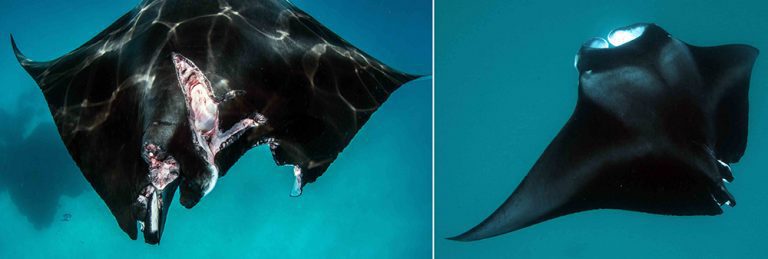DIVING NEWS
Maldives manta returns from the dead

Babaganoush in November 2108 (left) and restored to health this May. (Pictures: Flossy Barraud (left) and Simon Hilbourne / Manta Trust)
A male manta ray called Babaganoush, well-known to Maldives marine biologists and divers, has reappeared in Baa Atoll’s Hanifaru Bay six months after sustaining what were believed to be fatal injuries from a speedboat strike.
Babaganoush was one of more than 5000 reef mantas (Mobula alfredi) to be identified by their spot patterns as part of the Maldivian Manta Ray Project, run by conservation and research body the Manta Trust. He had been sighted more than 200 times since 2005.
In November 2018, however, Manta Trust researchers filmed the ray with the serious injuries shown in the picture on the left. Mantas in the Maldives are vulnerable to boat strikes while feeding or travelling at the surface, says the trust, especially outside the few small marine protected areas in which boat speed restrictions are imposed.
16 May 2019
The team reported that the injuries were among the worst they had ever recorded on a living manta. The propeller had cut so deep into his body cavity that his internal organs were exposed.
Then on 4 May Babaganoush returned to Hanifaru Bay “looking healthy and extremely well-healed”, according to the researchers. They say that the recovery illustrates “the remarkable ability of manta rays to resist infection and heal, allowing them to survive – at least sometimes – injuries that we’d assumed would prove fatal”.
They point out that the incident also illustrates the increasingly negative impact of humans on species such as mantas, turtles and whale sharks, even in countries that protect them from fishing.
“Each year, as speedboat traffic significantly increases in the Maldives, where little-to-no speed limits are in place throughout much of the country, the nation’s marine life faces a serious threat from the unregulated impacts of rapid human development,” says Manta Trust Founder and CEO Dr Guy Stevens.
“Urgent actions are therefore needed by the Maldives government to implement effective management regulations, especially at key megafauna aggregation sites, and along migratory corridors.”
The Manta Trust provides the chance to adopt manta rays here .

